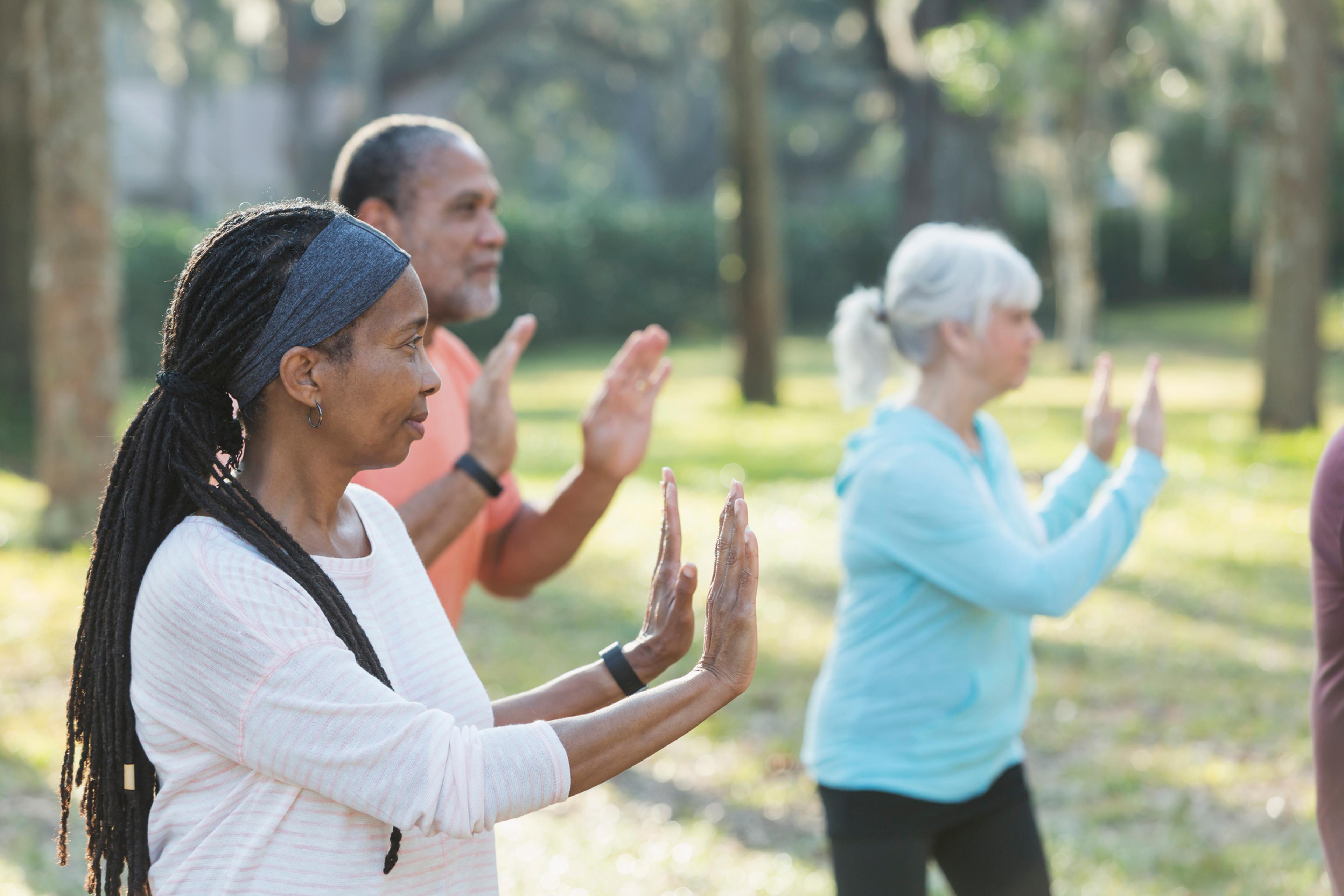10 Health Benefits of Tai Chi

Caroline Samuelsen
| 3 min read

Are you looking for an activity that is good for all aspects of your health like physical, mental, and social? We have just the activity. Originating as a mixed martial art from China, tai chi is an activity that involves a series of gentle and slow movements, a meditative state of mind, and physical postures. Tai chi has become focused on health promotion and rehabilitation, according to the National Center for Complementary and Integrative Health (NIH).
Here are some of the health benefits of tai chi:
Helps Reduce Stress
When practicing tai chi, you have to focus on your breathing and movements. This means your brain isn’t thinking about the other stressors in your life. Tai chi can bring out the sense of quiet that you might need in your daily life. A study cited by the Cleveland Clinic states practicing tai chi for 12 weeks significantly lowered anxiety levels in participants, more than other forms of exercise.
Increases Flexibility
Tai chi overall increases flexibility in all areas of the body. By learning new physical movements, your body will develop new flexibility overall. For those who are not the most flexible, tai chi is a great option, it does not cause a lot of intense movements.
Improves Balance
Tai chi helps to train the sense of proprioception, which is the ability to sense one’s body in a space. That ability declines with age, but the practice of tai chi helps activate that ability more with the movements that you learn.
Good for your Brain
Similar to reducing stress, tai chi is good for your brain as it quiets your mind for the length of time that you practice. Tai chi helps your brain switch from one task to another better, a skill that dulls with age.
Can Help with Depression
When it is combined with medication, tai chi can help reduce the symptoms of depression. Adding a few hours of tai a week can help you feel more like yourself, according to the Cleveland Clinic.
Helps with Fibromyalgia Pain
Fibromyalgia can cause full body pain and can be debilitating for people. A study cited by the Cleveland Clinic stated those who practiced tai chi found immense relief of this symptom compared to those who did not.
Helps with Knee Osteoarthritis
Studies cited by the Cleveland Clinic have shown that participating in tai chi can immensely help with knee osteoarthritis, helping to calm the joints in the knee.
Aerobic Conditioning
Practicing tai chi helps to increase your cardio and is good for your heart. Though it is not as intense as other forms of cardio, over time it helps to strengthen your heart.
Improves Muscle Strength
Similar to flexibility, the physical movements of tai chi can help to strengthen your muscles over time. Tai chi provides an option other than traditional weightlifting or strength training to help build up muscles.
Low Impact Fitness
For those who are injured, tai chi is a great exercise to do because it does not cause intense stain on the body and is very low impact.
How to Begin Practicing Tai Chi
Starting tai chi should not be intimidating. No matter how old you are or your level of fitness, you can start to practice tai chi. There are many ways to get involved such as finding a class at your local recreation center or finding an instructional video online. Keep up with classes for a few weeks and you will start to notice a difference, according to the NIH.





